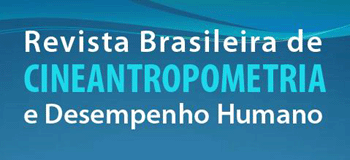abstract
It is known that cardiovascular risk is increased during exercise and recovery. Thus, it is necessary to assess all the risk associated with exercise to minimize the possibility of cardiovascular events. The aim of this study was to verify whether a maximal exercise alters ambulatory cardiac autonomic modulation in untrained women and whether aerobic fitness is correlated to cardiac autonomic modulation. Twelve women (25.35 ± 5.44 years) were outfitted with the Holter monitor on an experimental (after maximum exercise) and a control day to heart rate variability (HRV) evaluation. Maximal exercise increased 24 h heart rate (82 ± 14 vs 77 ± 11 bpm; p = 0.04) and during sleep time (72 ± 14 vs. 65 ± 9 bpm; p = 0.01), reduced parasympathetic modulation (HF – n.u. 49.96 ± 11.56 vs 42.10 ± 14.98; p = 0.04), and increased low-frequency/high-frequency ratio (2.88 ± 3.24 vs 1.31 ± 0.60; p = 0.03) during sleep time compared to the control day. Aerobic fitness was correlated positively with LF, HF, and HF (n.u.) indices (r = 0.61 to 0.73, p < 0.05) and correlated negatively with LF (n.u.) and LF/HF ratio (Rho = - 0.57 to - 0.69; p < 0.05). Maximal exercise alters parasympathetic modulation during sleep time in untrained women. Ambulatory cardiac autonomic modulation after exercise is related to aerobic fitness.
Keywords:
Heart rate; Heart rate variability; Intense exercise; Maximum oxygen uptake

 Thumbnail
Thumbnail
 Thumbnail
Thumbnail
 Thumbnail
Thumbnail


